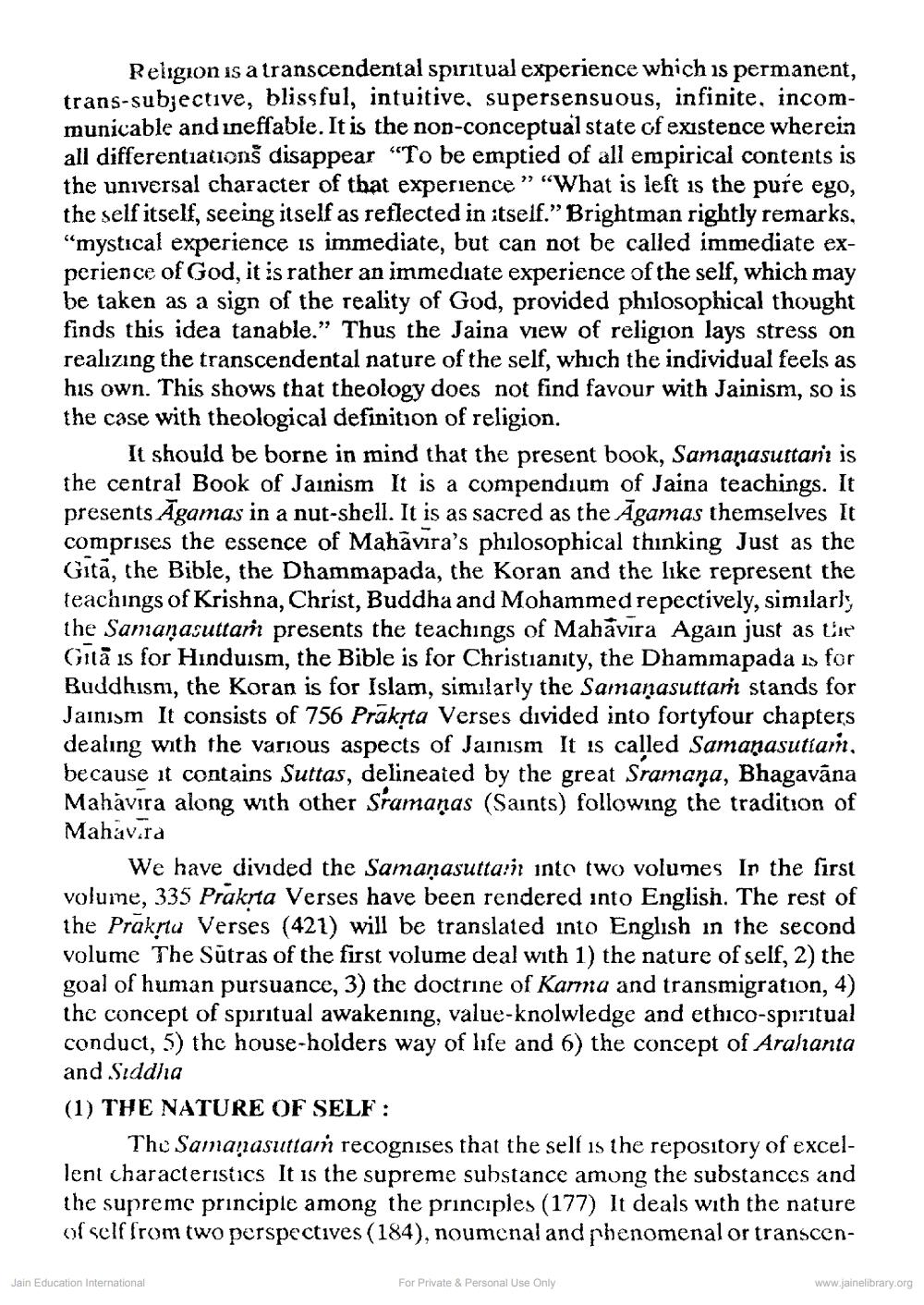________________
Religion is a transcendental spiritual experience which is permanent, trans-subjective, blissful, intuitive, supersensuous, infinite, incommunicable and ineffable. It is the non-conceptual state of existence wherein all differentiations disappear "To be emptied of all empirical contents is the universal character of that experience ""What is left is the pure ego, the self itself, seeing itself as reflected in itself.” Brightman rightly remarks, “mystical experience is immediate, but can not be called immediate experience of God, it is rather an immediate experience of the self, which may be taken as a sign of the reality of God, provided philosophical thought finds this idea tanable.” Thus the Jaina view of religion lays stress on realizing the transcendental nature of the self, which the individual feels as his own. This shows that theology does not find favour with Jainism, so is the case with theological definition of religion.
It should be borne in mind that the present book, Samanasuttanr is the central Book of Jainism It is a compendium of Jaina teachings. It presents Agamas in a nut-shell. It is as sacred as the Agamas themselves It comprises the essence of Mahavira's philosophical thinking Just as the Gitā, the Bible, the Dhammapada, the Koran and the like represent the teachings of Krishna, Christ, Buddha and Mohammed repectively, similar) the Samaņasuttam presents the teachings of Mahavira Again just as tre Gilā is for Hinduism, the Bible is for Christianity, the Dhammapada is for Buddhısnı, the Koran is for Islam, similarly the Samanasuttaṁ stands for Jainism It consists of 756 Prakrta Verses divided into fortyfour chapters dealing with the various aspects of Jainism It is called Samanasutiarn, because it contains Suttas, delineated by the great Sramana, Bhagavāna Mahavira along with other Sramanas (Saints) following the tradition of Mahav.ra
We have divided the Samanasutta:in into two volumes In the first volume, 335 Prakrta Verses have been rendered into English. The rest of the Prakru Verses (421) will be translated into English in the second volume The Sūtras of the first volume deal with 1) the nature of self, 2) the goal of human pursuance, 3) the doctrine of Karma and transmigration, 4) the concept of spiritual awakening, value-knolwledge and ethico-spiritual conduct, 5) the house-holders way of life and 6) the concept of Arahanta and Siddha (1) THE NATURE OF SELF:
The Samaņasuttain recognises that the self is the repository of excellent characteristics It is the supreme substance among the substances and the supreme principle among the principles (177) It deals with the nature of self from two perspectives (184), noumenal and phenomenal or transcen
Jain Education International
For Private & Personal Use Only
www.jainelibrary.org




